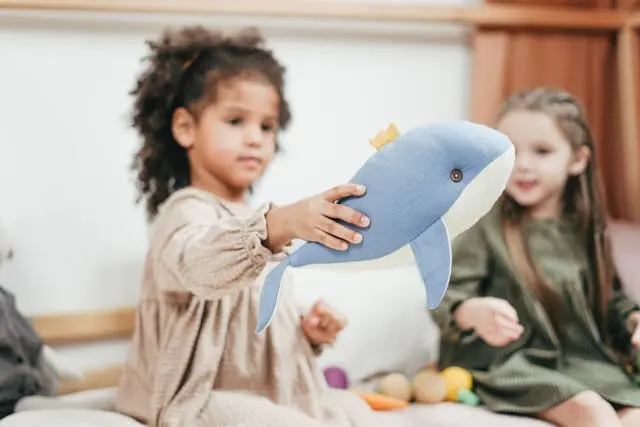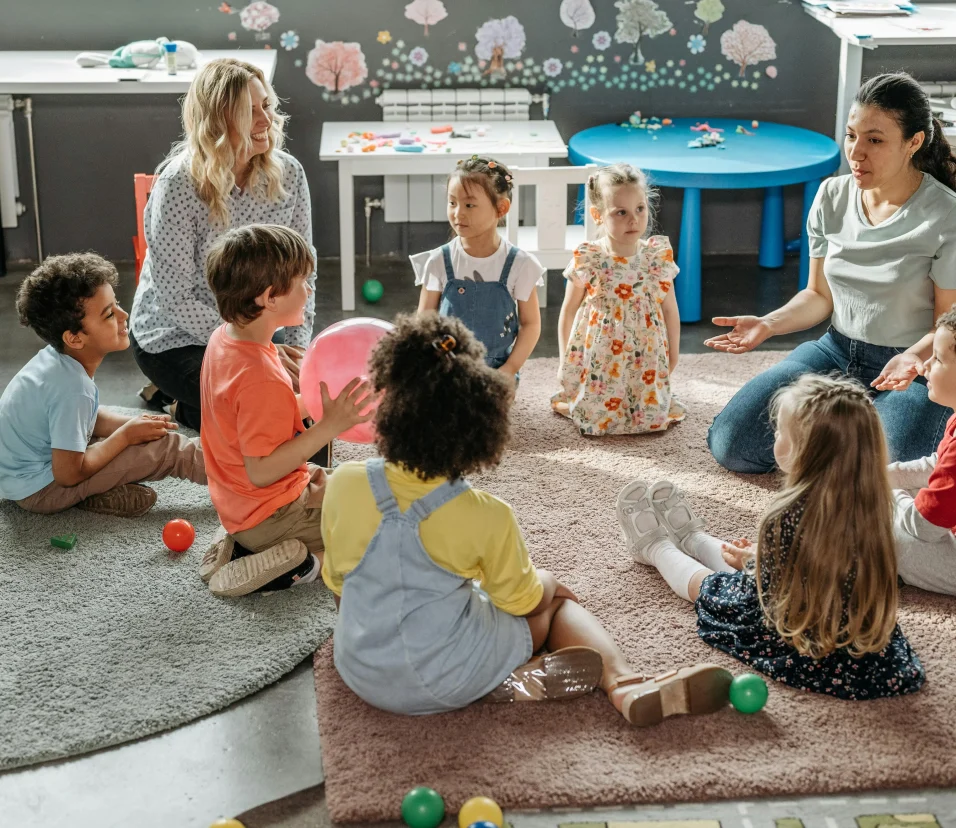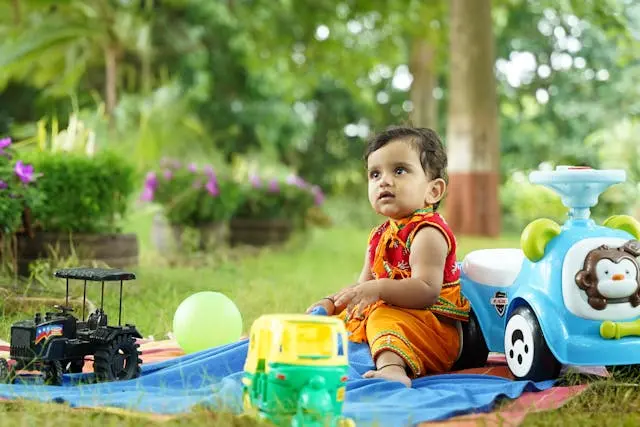The Positive Impact of Daycare on Child Development- A Comprehensive Guide
Early childhood education is essential for setting a strong foundation in a child’s life. Daycare is more than just a place for children to be while parents work; it plays a crucial role in a child’s overall development. Are you searching for daycare near me? Discover top-rated local facilities that provide nurturing environments and expert care for your children. This article explores the benefits of daycare and how it positively affects a child’s growth in various areas.
Enhanced Social-Emotional Development in Daycare
Building Essential Social Skills Through Interaction
One of the most significant benefits of daycare is the opportunity for children to engage in social interaction from a young age. In a structured environment with peers, children learn crucial social skills, such as sharing, taking turns, and resolving conflicts. This early exposure to diverse personalities and social dynamics helps them develop empathy and understand others’ perspectives.
A study by the National Institute of Child Health and Human Development found that children attending daycare often displayed more advanced social skills than those who remained at home. This wasn’t simply a matter of time spent with other children; it was about the structured play and learning opportunities provided within a daycare setting. For example, group activities, arts and crafts, and organised games encourage children to collaborate, negotiate, and learn to resolve disagreements constructively. Further, the presence of other children with varying temperaments and backgrounds creates a rich environment for learning about different cultures and perspectives.
Developing Emotional Regulation Skills
Daycare environments, when well-managed, provide opportunities for children to develop essential emotional regulation skills. Consistent routines, clear boundaries, and positive interactions with caregivers help children understand and manage their emotions. Through observation and interaction, children learn to recognize and label different emotions in themselves and others. This is particularly crucial for developing self-awareness and emotional intelligence.
A case study conducted at a daycare centre observed that children who attended regularly demonstrated improved emotional control and adaptability. They exhibited greater resilience to stress and frustration and were better able to express their needs and feelings constructively. This often translates into better behaviour at home and in school later on. The consistency of caregiver interactions and the presence of peers helps children learn to cope with various emotional situations, preparing them for the challenges of school and life.
Navigating Social Dynamics and Conflict Resolution
Conflict is a natural part of life, especially among young children. Daycare teaches kids how to resolve conflicts amicably. They learn to negotiate, apologize, and forgive, which are essential skills for navigating relationships throughout their lives.

Cognitive Development and Academic Readiness
Language Development and Communication Skills
Daycare provides a rich language environment for children, fostering their communication skills. The interaction with peers and caregivers, coupled with the use of diverse language models, helps children expand their vocabulary and develop their understanding of grammar. The repetition of words, phrases, and stories, often integrated into daily activities, promotes language acquisition and enhances their ability to express themselves effectively.
Research shows a strong correlation between early exposure to language-rich environments and improved language development. Children in daycare, often exposed to a wider range of vocabulary and sentence structures, tend to exhibit more advanced language skills than their counterparts who primarily interact with fewer individuals. This is further enhanced by the use of storytelling, songs, and interactive learning experiences, all of which stimulate language development in a fun and engaging way.
Problem-Solving Skills and Critical Thinking Development
Daycare encourages creative play and exploration. These activities help children develop critical thinking and problem-solving skills. Whether it’s figuring out how to build a tower with blocks or deciding who gets to swing first, these everyday scenarios promote cognitive maturity.
Fostering Curiosity and a Love of Learning
By participating in various activities, children develop a natural curiosity. Daycare programs often include science experiments, art projects, and hands-on learning experiences. This variety not only keeps their interest alive but also instils a lifelong love for learning.
Improved Physical Development and Health
Physical Activity and Motor Skills Enhancement
Daycare is a hub for active play. Kids run, jump, and climb, which supports their physical development. Activities like playing on the playground or engaging in group sports help enhance motor skills, balance, and coordination.
Nutrition and Healthy Habits Established
Many daycare facilities prioritize nutrition by offering balanced meals and snacks. This exposure to healthy eating habits can shape children’s tastes and preferences. Knowing about balanced diets from an early age helps set the stage for a healthy lifestyle.
Early Detection of Developmental Delays
Regular interaction with trained caregivers allows for early identification of developmental issues. Caregivers can spot challenges in areas like speech or motor skills, enabling early intervention that can lead to better outcomes.
Preparing for Kindergarten and Beyond- Daycare’s Long-Term Impact
Enhanced Independence and Self-Confidence
Being away from parents helps children become more independent. They learn to make choices, follow routines, and manage their own belongings. This boost in self-confidence can be seen when they transition to kindergarten, ready to take on new challenges.
Development of Resilience and Adaptability
Facing new situations in daycare builds resilience. Kids learn to cope with changes, whether it’s adapting to new friends or trying new activities. This adaptability is crucial as they move into later stages of education and life.
Building a Foundation for Future Success
The skills gained in daycare often reflect in future academic and social settings. Children who have attended daycare typically show higher readiness for school, better relationship skills, and an overall positive outlook on learning.
Choosing the Right Daycare: Key Considerations
Assessing the Quality of Care and Educational Programs
Look for daycare centres with structured programs focusing on learning through play. Quality daycare should foster both educational and emotional growth, ensuring well-rounded development.
Understanding Licensing and Accreditation Standards
Always check for licensing and accreditation. These standards ensure that the daycare meets specific regulations and provides a safe, nurturing environment for your children.
Building a Strong Parent-Provider Partnership
A good partnership between parents and caregivers is vital. Open communication regarding your child’s needs will contribute to a successful daycare experience. Regular updates from caregivers help in understanding your child’s progress.
Conclusion: Reaping the Rewards of Early Childhood Education
Key Takeaways: Long-Term Benefits of Quality Daycare
Investing in quality daycare can yield countless benefits. From social-emotional growth to cognitive development, children gain skills that prepare them for life. It’s not just about childcare; it’s about nurturing future generations.
Actionable Steps: Finding and Choosing the Right Care Provider
- Research local daycare options.
- Visit multiple facilities to find the best fit.
- Ask other parents for recommendations.
Investing in Your Child’s Future: A Final Thought
Daycare can be a valuable resource for fostering a child’s development, offering opportunities for socialisation, emotional growth, cognitive stimulation, and language acquisition. However, the success of daycare hinges on the quality of the care provided. By selecting a high-quality facility with qualified staff and a supportive environment, parents can maximize the benefits of daycare while mitigating potential challenges. The key is to consider the individual needs of the child and to create a seamless integration between daycare and home life. Ultimately, daycare can be a positive and enriching experience that sets the stage for a child’s future success.









